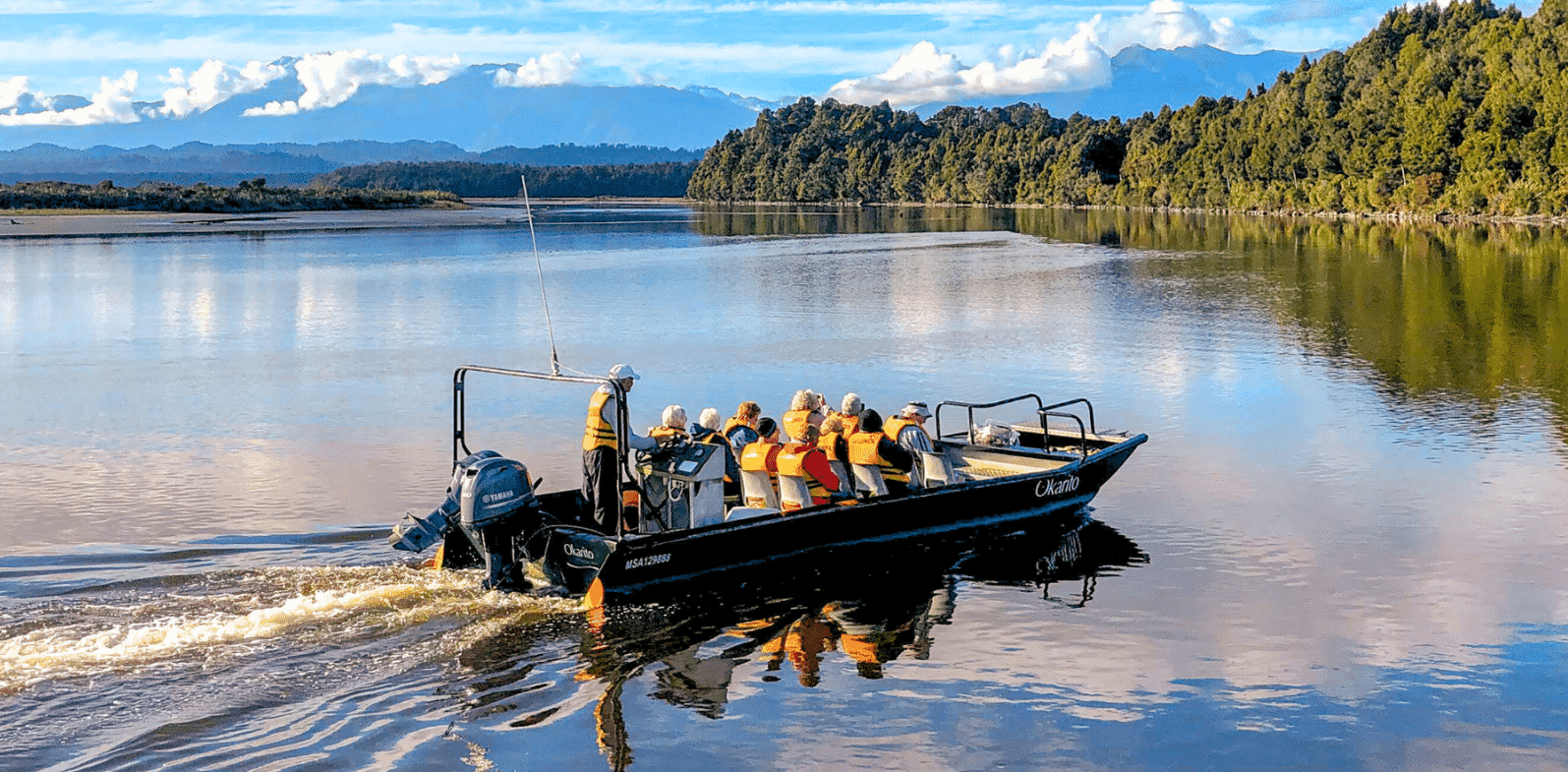If you’re visiting Iceland, whale-watching will almost certainly be at the top of your to-do list – provided you visit at the right time of year.

Watching these magnificent creatures leap and breach is an unforgettable sight and the waters around Iceland are some of the best in Europe for viewing whales in their natural environment.
More than 20 types of whale live off or regularly visit the Icelandic coast, with minke, white-beaked and humpbacks the most common species.
In Iceland, whale-watching tours are a fun way of seeing these sea mammals, with many boats claiming a 90 percent chance of a sighting during whale-watching season.
And there’s a decent chance you’ll see orcas, harbour porpoises and dolphins too!
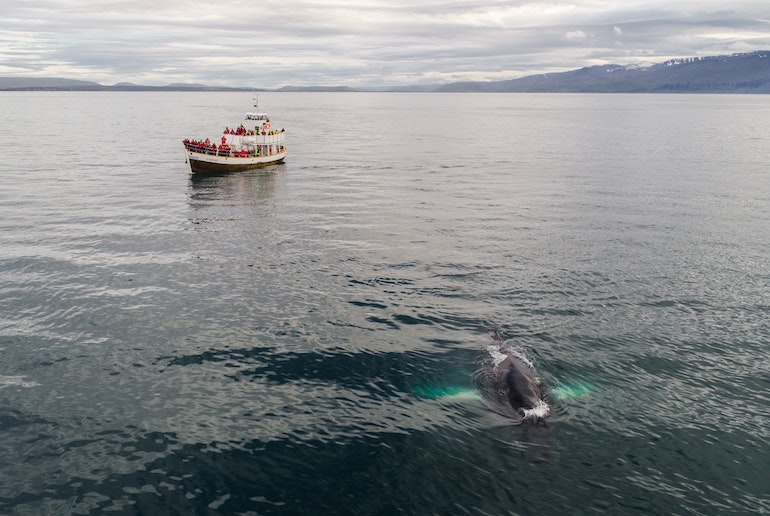
So, what month is best for whale-watching in Iceland? And how much does it cost? Here’s everything you need to know about whale-watching in Iceland – including recommendations for some of the best tours too.
When is whale-watching season in Iceland?
You can see whales all year round in the waters around Iceland, so there are trips that run throughout summer and winter.
However, summer is considered the real whale-watching season as many migratory whales pass through Iceland’s waters in the summer, so there is a bigger variety of species and a larger number of whales around.
In addition, weather conditions are much calmer in summer so there’s less chance of trips being cancelled or setting sail in rough seas and gusting winds.
So for the highest chances of seeing a whale and the calmest weather conditions, the best months for whale-watching in Iceland are April to September.
Where to go whale-watching in Iceland
If you’re really lucky you can sometimes see whales swimming in large pods from the shore, but realistically you’ve got a much better chance of a sighting if you take an atmospheric boat trip with an experienced guide.
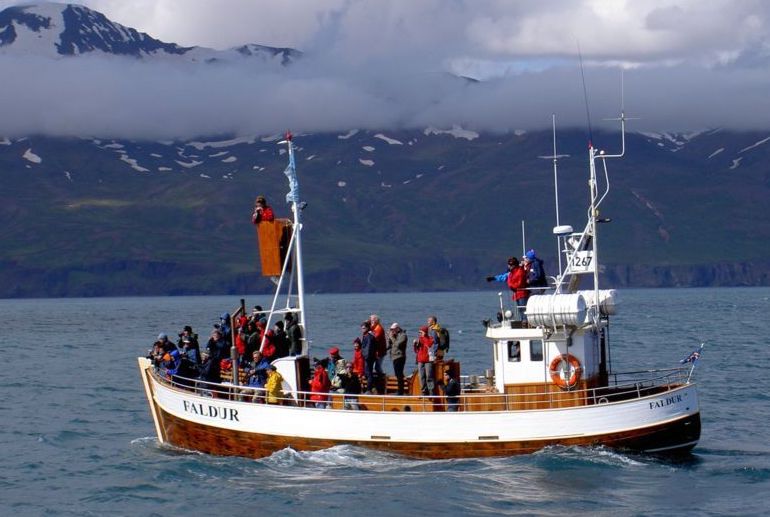
There are three main ports where whale-watching tours leave from – Reykjavik in the southwest of the island, and Akureyri and Husavik on Iceland’s north coast.
The former whaling centre of Husavik is known as Iceland’s whale-watching capital and is the place where you’re most likely to see the giant humpback whales.
Husavik has the best selection of guided tours to see the whales, but Reykjavik is generally more convenient for most visitors wanting to see whales in the wild.
Whale watching tours from Reykjavik also have the advantage of providing great views of the cone volcanos on the Reykjanes peninsula, where the highly active Fagradalsfjall volcano looms.
How much is whale-watching in Iceland?
There are many different types of whale-watching trip: from midnight sun whale-watching cruises to whale-watching on a luxury yacht or a RIB.
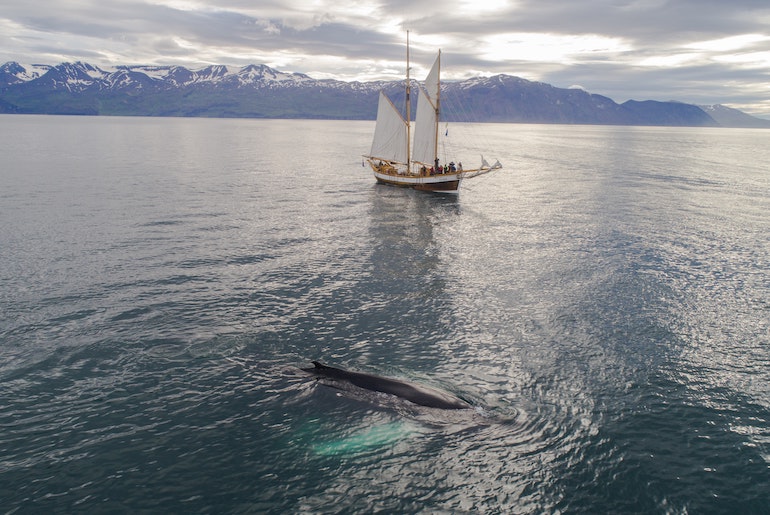
But as a ballpark figure, a basic two- to three-hour trip from Reykjavik starts from around 10,000 ISK (£60 or $75) per person.
If you’re unlucky enough not to see any whales during your trip, a handful of operators offer a cash refund – but most will give you a free ticket to go again on another day (not always possible if your flight out is already booked).
Is whale-watching in Iceland ethical?
Unlike in some countries, there are no legal protections for whales or regulations about their welfare in Iceland, with regards to tourism.
However, there is a voluntary code of conduct for responsible whale-watching that several operators have signed up to.
It governs things like the distance boats can get from a whale, and how to approach a whale and minimise the impact on the animals.
For more information on the code of conduct and information about which operators have signed up to it, see the Icewhale website.
Is whale still eaten in Iceland?
Commercial whaling is being phased out in Iceland, but whale is still served up in some (mostly tourist-oriented) restaurants.
However, a tiny percentage of Icelandic people eat (or at least, admit to eating) whale. The adage these days is ‘Meet us, don’t eat us’.
There is an argument that, by choosing ethical whale-watching tours that respect these beautiful mammals, tourists are offering locals a viable alternative to commercial whaling.
Our picks: the best Iceland whale-watching tours
Boat trips leave regularly from the three main whale-watching ports, Reykjavik, Akureyri and Husavik.
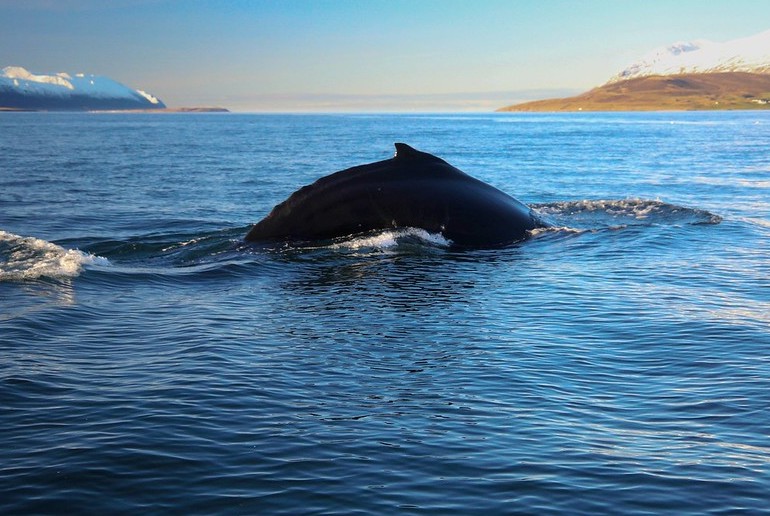
Until the end of October you can also take whale-watching trips from the small north coast town of Dalvik that sometimes take in the island of Grimsey in the Arctic Circle.
We’ve picked some of our favourite tours from each of the three main whale-watching ports.
Whale watching in Akureyri, Iceland
Sitting at the bottom of the Iceland’s longest glacial fjord, Akureyri is a great base from where to head off on a whale-watching boat trip.
This classic three-hour trip with an environment-friendly company takes you through the sheltered waters of the fjord in search of whales and dolphins.
Humpbacks are the most common species of whale to frequent the fjord, so you’ve got a good chance of a sighting.
Whale-watching in Husavik, Iceland
Boats trips from the former whaling centre of Husavik head out across Skjálfandi Bay in search of marine mammals and seabirds.
This carbon-neutral whale trip takes you out in a hybrid oak boat that runs on renewable energy, rather than fossil fuel, limiting its environmental impact. You also get a cup of cocoa and a cinnamon bun to keep you going during the trip!
And if you fancy combining puffin spotting with whale-watching, this high-energy RIB trip takes you to Puffin Island, where the characterful birds nest from mid-April to mid-September, before heading further out to sea to find whales.
Whale watching in Reykjavik, Iceland
Reykjavik has the greatest variety of whale-watching trips, with boats leaving regularly throughout the day year-round.
This classic three-hour trip on board Iceland’s largest whale-watching boat takes you out across Faxaflói Bay with experienced guides to point out the marine life.
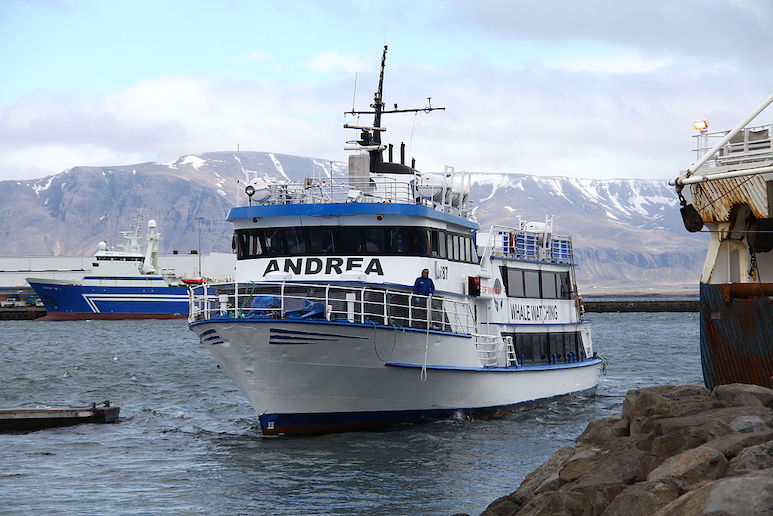
Alternatively, this high-adrenaline RIB ride gets you further out to sea quicker, so maximises the time spent with any whales that you find. Just wrap up warm and be prepared to get wet!
An altogether calmer experience is this luxury yacht that sails around the islands of Faxaflói Bay in search of whales.
And if you’re in Iceland between May and the end of August, you can do this midnight sun whale-watching trip which sets sail in the evening in search of marine mammals under the atmospheric light of the midnight sun.

